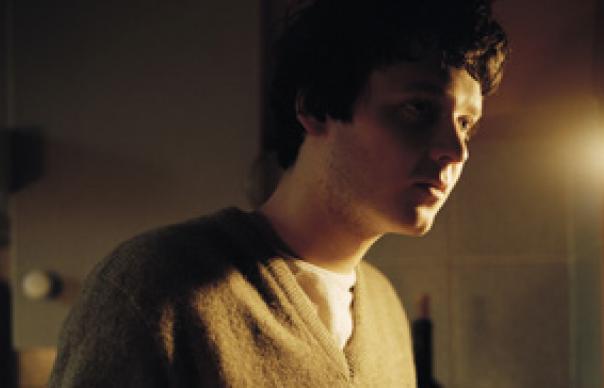Released last year, Beirut’s debut album 'Gulag Orkester' was a shamelessly postmodern yet clearly heartfelt exercise in East European gypsy music pastiche. Remarkably, for all its sepia-tinted melancholy and antique beauty, it was composed and largely recorded by teenage prodigy Zach Condon in his New Mexico bedroom. It earned huge acclaim and its creator toured the world, suffering a minor breakdown along the way. Now 21, Condon shifts his retro-homage focus westward to France on this richly rendered sequel. Partly inspired by a century-old photograph, The Flying Club Cup is a concept album of sorts. The original intention was to pay homage to a series of French towns, one in each track. Titles like “Nantes” and “Cherbourg” survive, but thankfully Condon ditched this plan in favour of more general themes and emotions. Although Condon spent long periods in Paris before making 'The Flying Club Cup', much of it was actually recorded in New Mexico. Rather like the work of “freak folk” duo CocoRosie, this album inhabits an exile’s exotic opium dream of Paris, a quasi-mythic city where ennui-laced chansons glide down late-night boulevards accompanied by Mexican mariachi trumpets and florid flamenco flourishes. There are also nods to the rousing cod-Balkan folk of its predecessor. Condon coos these heartbroken serenades and intoxicated ballads in a liquid vibrato moan somewhere between Thom Yorke and Antony Hegarty. “La Banlieu” is a tormented plea to a lost lover, fiery and impassioned. “In the Mausoleum”, conversely, could well be the most cheerful funeral song ever written. It is also a thing of simple, mesmerising beauty. 'The Flying Club Cup' may feel a little gimmicky on first contact, but the songs are ultimately strong enough to shake off any conceptual baggage. If you can forgive Condon’s mannered delivery and overabundance of drunken waltz rhythms, this is an audacious experiment in cultural appropriation, an enchanting musical holiday in someone else’s misery. STEPHEN DALTON Q&A: ZACH CONDON UNCUT: Is the French influence on The Flying Club Cup more theoretical than musical? “It’s definitely not a direct, straightforward reference, just a vague launching pad for the album. Besides, it’s really hard to put your finger on what exactly is French music. All you can think about are the clichés, the accordion player on the riverside or something. None of it is really true.” Did you have any direct contact with Paris before making the album? “I’ve lived in Paris twice, actually. I just moved back to New York. Paris has always been my home away from home in Europe. I actually prefer it to America.” Is it true you collapsed of nervous exhaustion last year? “We got to Europe after two months touring in the US and things started to go awry. My brain was just playing tricks on me. I was in Paris: walking into traffic, I didn’t even see the cars around me.” INTERVIEW: STEPHEN DALTON
Released last year, Beirut’s debut album ‘Gulag Orkester’ was a shamelessly postmodern yet clearly heartfelt exercise in East European gypsy music pastiche. Remarkably, for all its sepia-tinted melancholy and antique beauty, it was composed and largely recorded by teenage prodigy Zach Condon in his New Mexico bedroom. It earned huge acclaim and its creator toured the world, suffering a minor breakdown along the way.
Now 21, Condon shifts his retro-homage focus westward to France on this richly rendered sequel. Partly inspired by a century-old photograph, The Flying Club Cup is a concept album of sorts. The original intention was to pay homage to a series of French towns, one in each track. Titles like “Nantes” and “Cherbourg” survive, but thankfully Condon ditched this plan in favour of more general themes and emotions.
Although Condon spent long periods in Paris before making ‘The Flying Club Cup’, much of it was actually recorded in New Mexico. Rather like the work of “freak folk” duo CocoRosie, this album inhabits an exile’s exotic opium dream of Paris, a quasi-mythic city where ennui-laced chansons glide down late-night boulevards accompanied by Mexican mariachi trumpets and florid flamenco flourishes. There are also nods to the rousing cod-Balkan folk of its predecessor.
Condon coos these heartbroken serenades and intoxicated ballads in a liquid vibrato moan somewhere between Thom Yorke and Antony Hegarty. “La Banlieu” is a tormented plea to a lost lover, fiery and impassioned. “In the Mausoleum”, conversely, could well be the most cheerful funeral song ever written. It is also a thing of simple, mesmerising beauty.
‘The Flying Club Cup’ may feel a little gimmicky on first contact, but the songs are ultimately strong enough to shake off any conceptual baggage. If you can forgive Condon’s mannered delivery and overabundance of drunken waltz rhythms, this is an audacious experiment in cultural appropriation, an enchanting musical holiday in someone else’s misery.
STEPHEN DALTON
Q&A: ZACH CONDON
UNCUT: Is the French influence on The Flying Club Cup more theoretical than musical?
“It’s definitely not a direct, straightforward reference, just a vague launching pad for the album. Besides, it’s really hard to put your finger on what exactly is French music. All you can think about are the clichés, the accordion player on the riverside or something. None of it is really true.”
Did you have any direct contact with Paris before making the album?
“I’ve lived in Paris twice, actually. I just moved back to New York. Paris has always been my home away from home in Europe. I actually prefer it to America.”
Is it true you collapsed of nervous exhaustion last year?
“We got to Europe after two months touring in the US and things started to go awry. My brain was just playing tricks on me. I was in Paris: walking into traffic, I didn’t even see the cars around me.”
INTERVIEW: STEPHEN DALTON



